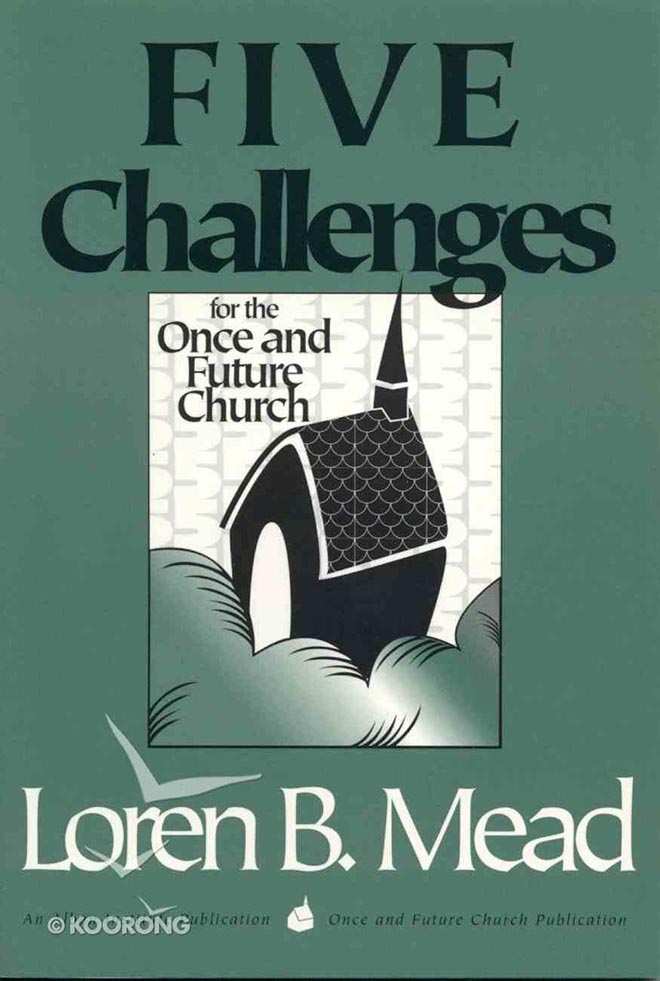I’m on a discussion list for the Uniting Church in Australia, Queensland Synod. Tomorrow morning we’re beginning our Synod meeting on the Sunshine Coast. I’m responsible for the 51 small groups. On the agenda will be theological education. A task group have written a report outlining the importance of theological education happening in evangelism, equipping lay ministry, and in resourcing those equip congregations. I wrote the following reflection on Loren Mead’s work to the list in response to this question:
“I hear a great deal about a new paradigm or a paradigm shift in relation to being church. I have not yet seen any attempt to frame this description in theological terms and I am at a loss to understand what people are seeking to describe when they refer to this paradigm change or new paradigm.”

Re emerging paradigms in relation to being church, I think we can see some emerging trends. I’d like to start the ball rolling with some provocation from Loren Mead, author of Once and Future Church.
Loren Mead in his book Five Challenges for the Once and Future Church outlines five emerging paradigm shifts.
1. Transfer the ownership of the Church
Mead here is responding to the fact up to now the church has been owned by the clergy. That is one huge factor in the way we train ministers. We may say we believe in the priesthood of all believers, but what really counts, in the mainstream paradigm of the Uniting Church, is the equipping of ordained preachers and pastors. What we see happening around the world is a growing sense of collaboration with a wide variety of local leaders. Specified ministries are being redefined as collaborative ministries rather than the practices of sole practitioners.
2. Find new structures to carry our faith
This one’s directly related to the report of the Mission and Service Fund Task Group. Mead points out that in many cases congregations and their leaders are fulfilling what used to be the role of denominations. We see the development of teaching and resourcing congregations such as Hillsong, Saddleback and Willow Creek. We have our own examples with Redcliffe, Robina and Logan. Mead reminds us of the growing distrust in centralised institutional structures. And of course we can’t afford the complexity of overheads we’ve had in the past. We’re at an institutional dead end. Mead encourages us as a denomination to learn from the small struggling ‘threshold’ congregations who are leading the way in thriving with fewer resources.
3. Discover a passionate spirituality
Mead calls for the mainline churches to integrate the gifts of the ordered, structured approach to spirituality with the those of the vital, enthusiastic Spirit-filled approach. “Because we cannot begin to imagine the challenges that will face those who will live in the twenty first century, the spirituality we have – traditional or charismatic – will not suffice.”
4. Feed the world’s need for community
Mead suggests that local congregations (particularly in cities) need to rediscover the power of being a Christian community founded in the Biblical grounds of our being. He says our congregations also have the function of being a generator of community that offers intimacy in house-church and small group settings.
5. Become an apostolic people (not just an apostolic church)
Mead says we’ve fallen into the trap of treating the ordinary member of the church as ‘client of the clergy’. We need to rediscover the sense of each member being a mission agent in their context. “Instead of maintaining a theology of the academy, we need an emerging theology born in the people’s engagement with God’s mission in the world.”

Sounding good…
Enjoy Synod!
I’m hoping to be in Brisvegas for the Theology of Youth and Children’s Ministry Course in June (pretty soon) so I ‘ll hope to have time to pop on in and say hey.
D
p.s blogger seems to be on par with livejournal thus far… I think I’ll enjoy using both clients for a while!